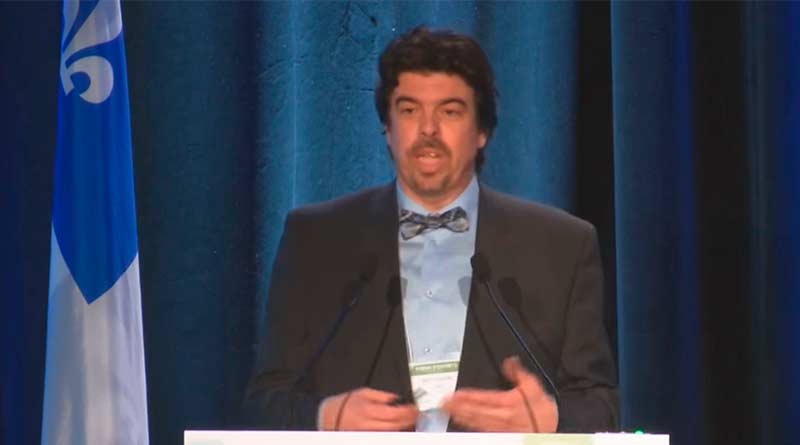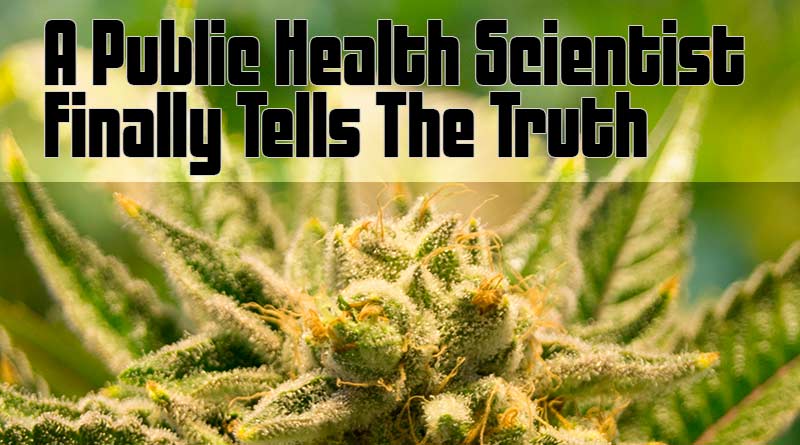The Mental Health Lobby Nonsense Finally Denounced By A Drug Addiction Specialist!
With the author’s permission, DepQuébec is very happy to reproduce here an op-ed letter published yesterday in La Presse +, a Montreal French digital daily, by Professor Jean-Sébastien Fallu, Ph.D. in Psychology on the sorry state of the current cannabis legalization debate in Quebec.
In various articles published in recent months (see here, here, here and here), DepQuébec has often deplored the moral turn taken by this debate under the influence of the massive public health lobby and its 1,000 groups ( physicians, psychiatrists, pressure groups and others) which, although they have no particular expertise in public policy, are posing themselves as definitive authorities in matters of distribution, taxation and regulation.
So as we anticipate the debate’s outcome through a new legislation, how refreshing it is to finally hear an enlighten scientist emanating from the public health community remind his peers of the real issues at stake.
We had already noticed Mr. Fallu’s insightful comments in a previous article after his address at the Forum of Experts on Regulation of Cannabis in Québec held last June.
It is therefore with great pleasure that we welcome his timely intervention in the hope that it can bring some reason in this debate to, at least, those in good faith.
Please note that the English translation has been assured by DepQuébec without the author’s review and input.
Good reading!

LEGALIZATION IS MAKING PSYCHIATRISTS CRAZY! by Jean-Sébastien Fallu, Ph.D. in Psychology
Of course not everybody, not just psychiatrists. Physicians, politicians, columnists too.
Even before the cannabis legalization intent was formally announced by the Trudeau government, the debate was raging. This debate has intensified in recent years but rather than being focused on why, it is solely centered on how. Unfortunately, some seem to have remained locked in the past. This is particularly true of the Association des médecins psychiatres du Québec (AMPQ), Quebec’ association of psychiatric physicians.
Of course, psychoses and cases of schizophrenia are very serious ills that greatly affect those with these conditions and their surroundings. However, psychotic disorders affect less than 3% of the population. And there are several other elements to consider, such as the criminalization of large groups of individuals which is also a very serious consequence. Moreover, it is currently more than 40% of young people aged 18 to 24 who consume cannabis without any quality assurance.
CAUTION THROWN TO THE WIND
Normally, psychiatrists and their association are extremely cautious when taking a position, based strictly on the evidence. But in the case of the cannabis legalization, this caution has been thrown to the wind. As a result, the AMPQ does not hesitate to take positions on issues that go beyond its field of expertise, where the evidence is scarce, to ignore those that exist — thus being at odds with their colleagues in public health — and, more seriously, to do exactly the opposite of what the science of prevention teaches us: fear, exaggeration, dramatization, which is well known to be capable of having contrary effects to those aimed at.
Examples include the numerous positions taken by doctors, psychiatrists and the AMPQ, notably on the legal age of access to cannabis, which they recommend at age 21. This is a clear case where the AMPQ is isolated in the face of a very strong consensus in public health for an age of access set at 18.
It appears that the AMPQ is only considering the harmfulness of cannabis to support its position.
And again, when compared with alcohol, cannabis is less harmful in all respects except perhaps those of mental health. For example, more users of alcohol grow an addiction (16%) than those of cannabis (9%). Yet to set the age at 21 would not prevent young people from consuming more than they currently do under the current prohibition regime, and there does not seem to be a catastrophe in Colorado, which has adopted a relatively permissive legal framework.
Cases of psychosis and schizophrenia already exist under prohibition. Cannabis is very accessible to young people, more than tobacco, and there is no evidence that support the claim that consumption will increase, contrary to the assumptions made by many including the AMPQ. Experts agree: it is not so much legalization per se that can increase the use and misdeeds of cannabis, but aggressive marketing.
And remember that cannabis is not legalized because it is good for health, but because prohibition is worse, by far.
So what about the harmfulness of prohibition? One of its damages is institutionalized criminalization and stigmatization, which greatly hurts people struggling with consumption issues. We must end this stigma. It is also one of the recommendations made to the Forum of Experts on Regulation of Cannabis in Québec last June, to which the president of the AMPQ replied: “Will we trivialize the small joint at lunch ?” This inability to recognize other consequences, such as those related to mental health and this polarization, are detrimental to the debate.
The summum was reached this summer when the AMPQ published an opinion letter entitled “Lea and the tams-tams”. This letter embodies what the prevention experts are warning us about, a mere dramatization on the basis of fictitious anecdotes.
And recently, the school lectures of Dr. Coulloudon, a psychiatrist at the Chicoutimi hospital, prompted me to write this letter. Probably well-intentioned, Dr. Coulloudon exaggerates or wanders unfortunately on several points and aspects when he makes claims such as: “All teenagers who consume have the brain atrophied”; “When you’re stoned, you don’t mature”; “100% of my patients use drugs” – as if it were proof of causality; “Usage will increase following legalization”.
Despite all the good intentions of which hell is paved, these arguments are counterproductive and are even likely to create anxiety and crises.
It scares those who are already afraid and discredits those who consume, because these statements do not correspond to their experience. This behavior on the part of professionals who use the power of their credibility to scare the world is deplorable and reveals their own personal and professional projections, much more than the objective dangers of substance, let alone legalization. They should give a hard look at their conduct and come to their senses!






